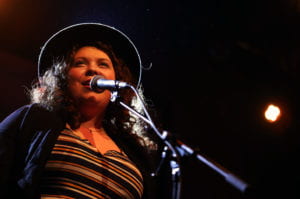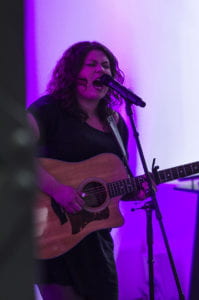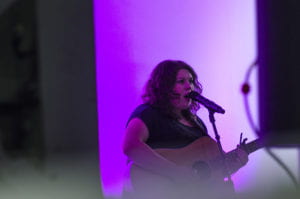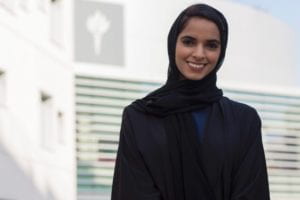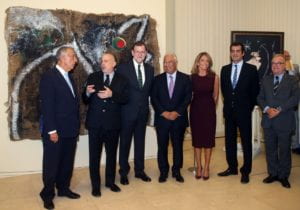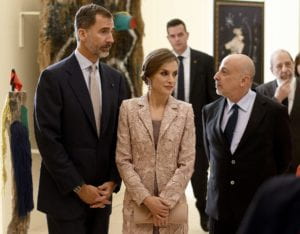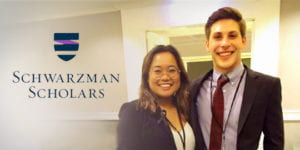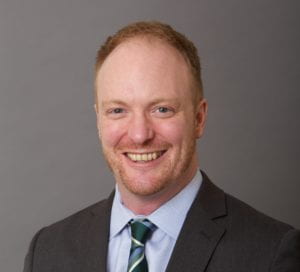
Patrick Egan, Associate Professor of Policy and Public Policy in NYU’s Department of Politics, discusses the January Term course he taught at NYU Washington, DC, The 2016 U.S. Presidential Election – Causes and Consequences, and more.
How did you come to teach at NYU Washington, DC? Is this your first time teaching at an NYU location outside of NYC? How have you found the experience?
This is my first time teaching at a site beyond NYC. However, I have been associated with the site for awhile as I am the chair of the site specific advisory committee for NYU Washington, DC. So I am a big believer in NYU DC and the unique role it can play in providing students a real world view of politics and policy that you can only get in the nation’s capital. I have long admired the staff and the site so it has been gratifying to teach here. The experience has been inspiring and rewarding, especially seeing how well we were able to leverage the resources of the site to put together a great course for the students.
As a professor in the NYU Department of Politics, how have you viewed the establishment of NYU Washington, DC? Do you think that time in the nation’s capital is valuable for students’ academic and personal development? If so, how do you think that value manifests?
In the NYU Politics Department in New York, I am one of a community of faculty committed to teaching politics in a fairly analytical and social scientific fashion. We are focused on statistics, economic analysis, data – all of which are very important for gaining insight to questions about politics and public policy. NYU Washington, DC is thus an important complement to our studies in New York because it provides students with direct exposure to people and issues that also inform politics and policy. It can give students real-world experience in putting analytical tools into practice and to see how they can effect positive change.
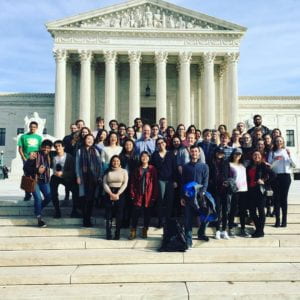
The class at the Supreme Court.
I understand that you taught a January term course at NYU Washington, DC – The 2016 U.S. Presidential Election – Causes and Consequences. Can you describe how you decided to develop this course?
As the 2016 campaign began in earnest after Labor Day, a number of us working with the NYU Washington, DC site tossed around idea of a January Term course. Our thinking was that the goal would be to provide students with the opportunity to assess what happened during the campaign and what we might expect to come due the result. Our vision was to provide standard political science treatments of politics and public policy while integrating them with the resources and people that are part of the NYU Washington, DC network. We thought this would be a powerful and illuminating combination for our students. In planning the course, despite the pundits’ focus on a Clinton victory, we kept in mind the real possibility that Donald Trump could win, so we made plans that anticipated either outcome. There was an unexpectedly large enrollment for the course before the election even happened–and very few students dropped the course after the result was clear. This demonstrated to me that students were interested and on board regardless of which candidate won. I should note that the schedule we put together for the course is really a tribute to NYU Washington, DC’s wide-reaching network of people in Washington who have experience in all aspects of politics and public policy. If you look at our syllabus, just about every day students are meeting people with expertise in campaigns, policy-making, and strategy from across the political spectrum. Bringing in such a rich array of experts is a testament to what a tremendous site NYU Washington, DC has become in a short time.
What are the major themes you will cover in the course? What kinds of students are enrolled?
We are covering two broad questions in the course. The first is understanding what happened: what created the extraordinary campaign of 2016 and the result, and what it means for elections and politics going forward. The second is focused on what the election means for public policy in DC and across the fifty states: understanding elections and voting as well as the consequences for American public policy at federal and state level.
I have been delighted to see interest from a wide range of students. We have 51 students enrolled. This is a much larger group than originally envisioned, but we were able to engineer the course to accommodate more students. The student group is quite diverse. We have freshman as well as seniors, many politics majors, but also those who have never taken a politics course. If has been a very nice opportunity to work with a really heterogeneous group of students. Some have been to DC before, have interned on Capital Hill or elsewhere, and others are new to Washington and learning from their peers.
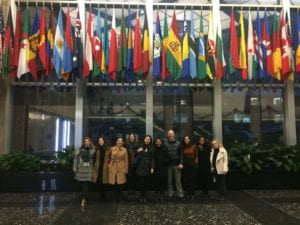
The class at the State Department.
Being in Washington, I understand you have structured the course to include many significant guest lecturers and visits to key institutions. How does that influence the learning process for students? What have been the greatest learning experiences of this course, both for you and for the students?
I think the best way to demonstrate how this has enriched the course is to mention just a few of the people who have come to speak and whom we have met with. This included Tad Devine, chief strategist for Bernie Sanders and a long-time Democratic strategist, who also teaches at NYU Washington, DC. We recently had Jonathan Capehart, a prominent columnist at The Washington Post. We also heard from Ron Christie, a former advisor to the Bush White House, who will also teach a course at NYU Washington, DC starting in February. We visited Capitol Hill for briefing sessions with two members of Congress who are also NYU Alums – Diana DeGette of Colorado and Martha Roby of Alabama. It was great to hear from two women in Congress, and it was also fascinating because they represent very different districts. Representative DeGette’s district includes Denver and its suburbs and is very liberal. Representative Roby’s district is conservative and includes Montgomery as well as military bases and rural areas of Alabama.
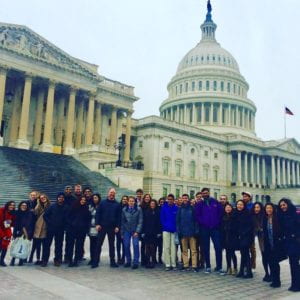
The class visits Capitol Hill
In addition to your research and work on public opinion and institutions in American politics, the formation of political attitudes, and LGBT issues and politics, I understand you regularly comment on such matters in the media, including as an elections analyst for NBC news as part of the network’s Exit Poll Desk team. Can you give us any insights as to what the 2016 election means for the future of US politics? And can you tell us about your experience at NBC this year – what was the most interesting moment doing that analysis?
The most interesting moment was late on election night, or rather early the next morning at about 1:30 a.m.. Several states were still uncalled and everyone at the Decision Desk was trying to understand and explain an election result that very few people had seen coming. The most interesting and important aspect of this was how much professionalism everyone on the team exhibited. Everyone was dedicated in the moment to getting it right and thinking through the consequences of a big decision – calling the election for Donald Trump, which NBC finally did shortly after 2 a.m.. It was an exhausting night, and we didn’t leave the room until 4:00 am, but the professionalism and objectivity of everyone on the team was inspiring.
In terms of the future of US politics, probably the biggest development we saw in terms of voting in the 2016 election was a complete about-face in trends among white voters. In 2016, there was a clear distinction between white voters without a college education and those with a college education. Typically these groups move in concert with one another: if one group swings to the Republicans, so does the other But this is the first time since we’ve been doing exit polling that shows working class and educated white voters moving in opposite directions: compared to 2012, less-educated whites moved to Trump while more educated whites moved to Clinton. Is this the new normal or was there something specific about the Trump – Clinton match up that lead to this change in voting? This is the $64,000 question we’ll need to watch over next few years
What has been most rewarding for you about teaching at NYU Washington, DC?
Definitely working with the students. It is a special kind of student who wants to spend three weeks of their winter vacation studying politics and public policy: a young person who is really interested in these issues and maybe thinking about a career in public service. Many of these students arrived with an almost encyclopedic knowledge of what happened during the election, a real intellectual interest in the subject matter, and a commitment to understanding. This makes my job as a teacher all the more delightful.
Finally, to students who were unable to take your J-Term course on the election but want to learn more about its causes and consequences, what resources would you suggest?
They should come and take courses in the Politics department at NYU! We have a lot of offerings that will help students understand the 2016 election and its consequences. I would of course also say that they should consider spending a semester at NYU Washington, DC. Beyond NYU, most of the standard resources out there are good. For example, the New York Times still has a great set of resources available: maps, graphs, tables of data, analysis of numbers on exit polls. Another place to look to is a blog hosted at The Washington Post called The Monkey Cage. It was co-founded by a colleague of mine in the NYU Politics Department, Josh Tucker, and is a well-regarded resource for up-to-the-minute developments in politics and public policy.
 For her pursuit of teaching excellence and cultural understanding, Assistant Professor of History Heather Ruth Lee of NYU Shanghai was conferred the prestigious Martin Luther King, Jr. Faculty Award on February 7, as part of a cherished tradition at the NYU community — the annual MLK Week.
For her pursuit of teaching excellence and cultural understanding, Assistant Professor of History Heather Ruth Lee of NYU Shanghai was conferred the prestigious Martin Luther King, Jr. Faculty Award on February 7, as part of a cherished tradition at the NYU community — the annual MLK Week.
